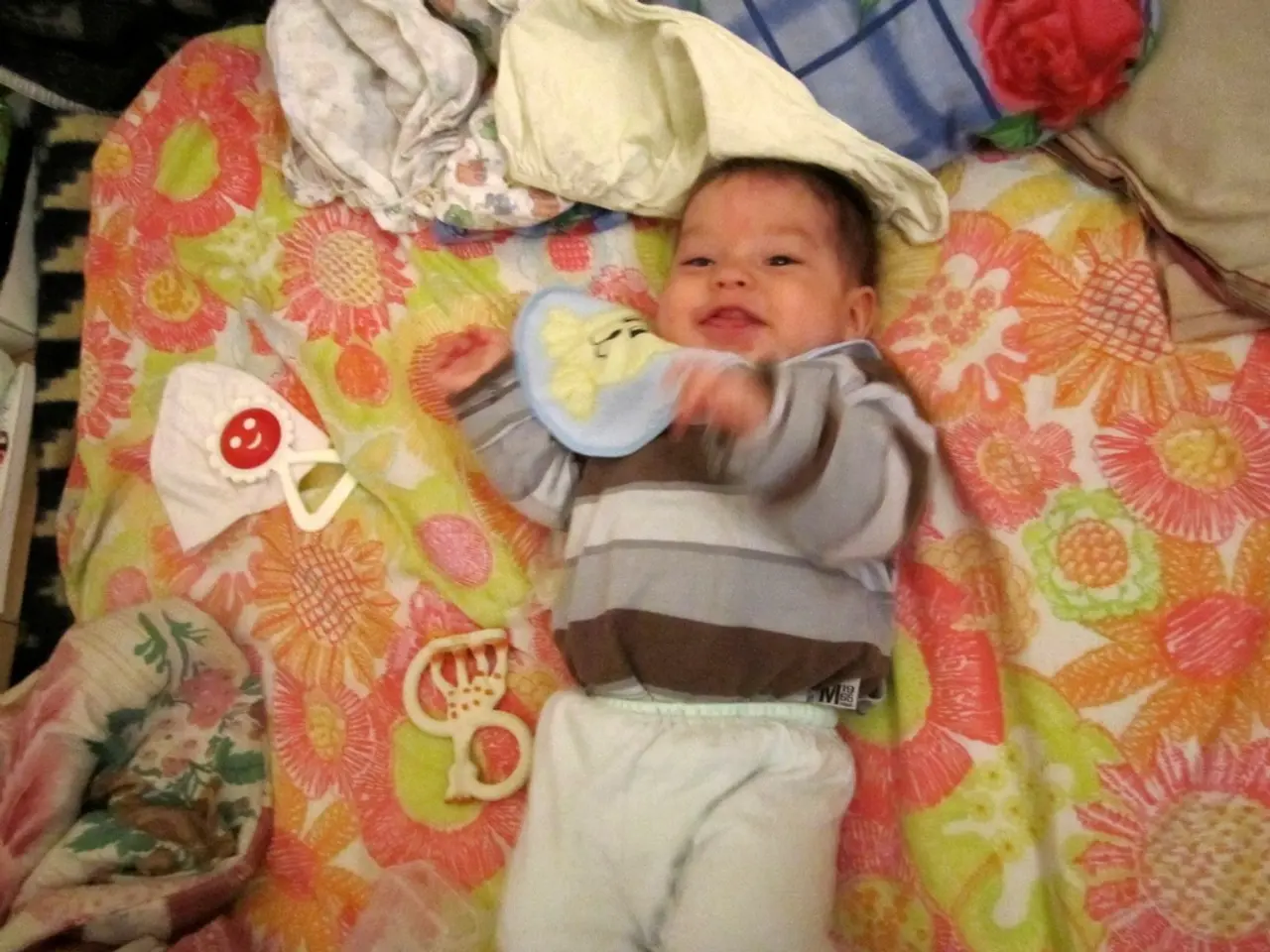Baby Development and Milestones at 36 Weeks, Along with Necessary Care Guidelines
36 Weeks Old: A Time of Rapid Development for Babies
At around 8 to 9 months, babies are typically 36 weeks old and are experiencing significant developmental milestones. This is an exciting time as they begin to sit without support, start crawling, and show increased interaction and vocalization.
Motor Skills
Most babies can sit steadily without support, may start crawling or scooting, and attempt to pull themselves up to a standing position. Fine motor skills also improve, with babies reaching and grasping objects, bringing them to the mouth, and possibly holding a bottle.
Communication
Babies begin babbling, making vowel sounds like “ah,” “eh,” and “oh,” and respond to their name and sounds around them. They show affection toward caregivers and increased interest in objects nearby.
Feeding
Feeding usually includes a combination of breastmilk or formula with the introduction of solid foods. Breastmilk or formula remains the primary source of nutrition but is complemented by purees or soft finger foods.
Sleeping
By 8-9 months, babies usually sleep around 12-15 hours total in 24 hours with generally 2 to 3 daytime naps and longer consolidated night sleep. Night wakings may still occur, often linked to developmental milestones or separation anxiety, and can cause temporary sleep regressions. Consistent bedtime routines and minimizing overstimulation before sleep help ease sleep patterns.
Care Tips
To support this rapid development, it's important to promote safe exploration by baby-proofing spaces since babies are more mobile and curious. Encourage tummy time and play to support motor development. Use consistent sleep routines to manage emerging sleep challenges.
Parents should also monitor for signs that developmental milestones might not be met, such as lack of interest in sounds or objects, no vowel sounds or rolling over, and abnormal muscle tone, and consult healthcare providers if concerned. For preterm or special needs infants, use adjusted age when evaluating progress and tailor sleep/feeding routines accordingly.
Comparison with Younger Ages
Compared to newborn and younger infants, 36-week-old babies have a much longer wake window, advanced gross and fine motor skills, intentional communication, and varied feeding. This progression illustrates significant growth in physical ability, communication, and sleep pattern consolidation.
During this stage, a baby may attempt to stand with support, walk with support, crawl, and sit comfortably on his own. Games like Fruit Faces can help nurture observation and hearing skills, while spending time in nature can help develop observational skills.
Remember, every baby is unique, and development may not follow a strict timeline. However, understanding the typical milestones at 36 weeks can help parents support their baby's growth and development. It's also crucial to be patient and accommodating during this time of rapid change.
If you have concerns about your baby's development or health, always consult a pediatrician. They will assess your baby's movement, grasping, playing, and eating/sleeping patterns during a check-up to ensure they are on track. Teething jelly can be given to ease teething pain, and offering finger foods or snacks can help a baby develop his pincer grasp.
In summary, the 36-week mark is a significant milestone in a baby's life, filled with exciting developmental leaps. By understanding these milestones, parents can provide the best support for their growing baby.
Read also:
- Inadequate supply of accessible housing overlooks London's disabled community
- Strange discovery in EU: Rabbits found with unusual appendages resembling tentacles on their heads
- Duration of a Travelling Blood Clot: Time Scale Explained
- Fainting versus Seizures: Overlaps, Distinctions, and Proper Responses








